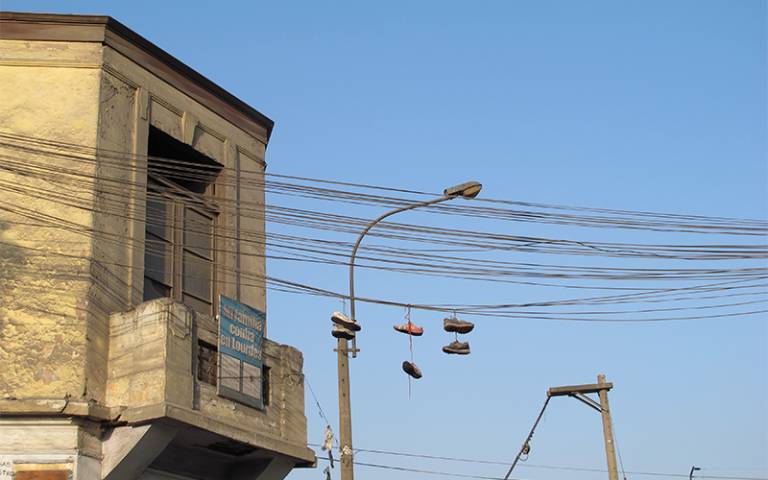New Energy project co-led by DPU's Rita Lambert has received funding from GCRF
9 July 2020
The project 'Grounded Energy Modelling for equitable urban planning development in the global South (GEMDev)' will be co-led by Rita Lambert with UCL Energy Institute, CDRF-CEPT (Ahmedabad), PUCP (Lima), FCPV, CENCA, and CIDAP

A £1.4m (FEC) research grant from the GCRF - (Re)thinking the off-grid city 2019, was awarded to the project Grounded Energy Modelling for equitable urban planning development in the global South (GEMDev). The project will be led by UCL Energy Institute Prof Paul Ruyssevelt and will include DPU’s Rita Lambert as co-investigator and lead of one of the work packages. The project, a partnership between UCL (London), CDRF-CEPT (Ahmedabad), PUCP (Lima), FCPV, CENCA, and CIDAP aims to contribute to inclusive decision making towards dignified housing and habitat by developing tools that can inform better energy planning.
Communities that are’ off the grid’ from affordable, reliable and safe forms of energy services experience negative impacts on health and economic opportunities. Focusing on the nexus between energy, comfort and housing, the project takes the case of Lima and Ahmedabad to better understand the access and use of energy in the day-to-day lives of inhabitants and how these practices change over time through different policies and processes related to low-income housing, such as consolidation, eviction, upgrading and relocation.
As data-driven approaches to energy planning, such as Urban Building Energy Models (UBEMs), are highly attractive to energy planners in the global South, the complexity of informal settlements is wholly absent from these models at present. The most vulnerable communities are either entirely overlooked or planned solutions fail to address their needs. The research project will analyse the governance and planning processes that have underpinned access to housing in Lima and Ahmedabad over time.
It will understand the everyday practices of inhabitants with regards to energy access and consumption, the economic, social, environmental and political impacts, and the consequences for the production of risk at the household and neighbourhood levels. It will use participatory research methods to co-create datasets with marginalised communities to ensure that they are represented in UBEMs of the future.
Photo © Rita Lambert
 Close
Close

